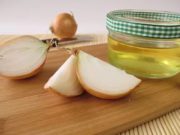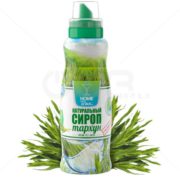Jerusalem artichoke syrup: two ways to prepare syrup from “earthen pear”
Jerusalem artichoke is a close relative of the sunflower. The yellow flowers of this plant are very similar to its counterpart, but are smaller in size and lack edible seeds. Instead, the Jerusalem artichoke bears fruit from its root. Tubers are widely used in cooking. They are used both raw and after heat treatment. Wonderful vitamin-rich salads are prepared from raw “ground pears,” and the boiled product serves as the basis for jams and preserves.
Today the topic of our conversation will be Jerusalem artichoke syrup. Recently, this product has become increasingly popular. You can buy it in pharmacies and stores, but the greatest benefit to your body will come from syrup prepared yourself. Read about the intricacies of preparing this dish in our article.
Content
How and when to collect Jerusalem artichoke
The earthen pear is very easy to care for and can grow in one place for up to 20 years. You can harvest the juicy tubers in the fall or early spring before the root crops sprout. This period falls approximately in April-May.It is believed that Jerusalem artichoke overwintered in the ground contains more vitamins and has a rich, sweet taste.
The dug up root vegetables are cleared of soil and washed thoroughly under running water. To prepare syrup, you can use Jerusalem artichoke, both peeled and peeled. The second option is more preferable, since the vegetable in this case does not lose part of the beneficial inulin concentrated under the thin skin.
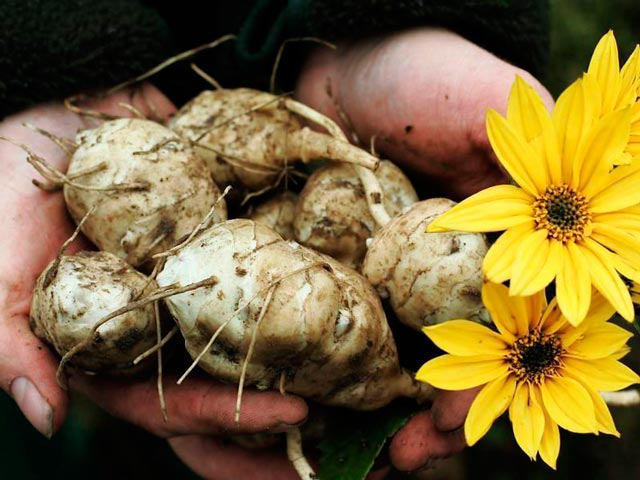
Two ways to prepare ground pear syrup
“Classic” version with lemon
The skin of Jerusalem artichoke tubers is peeled off with a sharp knife or the vegetable is used unprocessed. If you decide to peel an earthen pear, then to make the process easier, it is recommended to divide the overly branched root vegetables into segments.
Next, the pieces are crushed, turning them into a puree-like mass. To do this, you can use a meat grinder, blender or fine grater.
Chopped root vegetables are passed through a juicer press or manually squeezed through several layers of gauze.
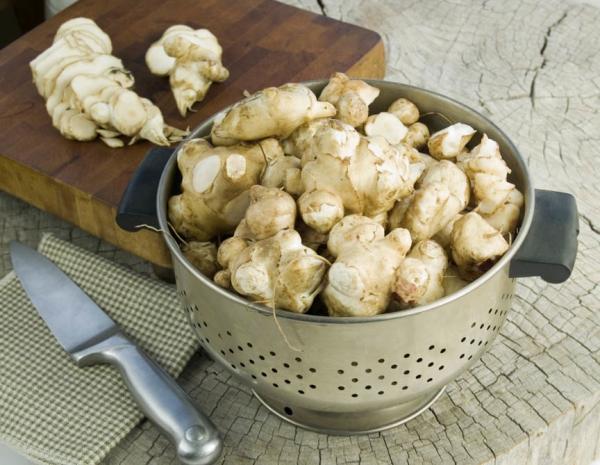
The resulting juice is poured into an enamel container and put on fire. The liquid is heated to a temperature of 50-60 degrees and the heat is reduced to minimum. There is no need to boil the syrup and add sugar to it.
After the juice has warmed up for 10 minutes, turn off the heat. The liquids are allowed to cool completely under natural conditions.
The cooled mass is returned to the fire and heated a second time. In order for the syrup to thicken, it must be evaporated in this way 5-6 times.
Before the last heating, add the juice of one lemon to the syrup. One fruit per kilogram of root vegetables will be enough.
To get rid of fibers and make the syrup transparent, it is filtered through a flannel cloth.
After the last heating, the syrup is poured into sterile containers and tightly sealed with a lid.

A quick way without additives
You can speed up the process of preparing Jerusalem artichoke syrup by boiling the product. In this case, vitamin C is destroyed, but most of the other beneficial substances remain unchanged.
Pre-treatment of root vegetables and the method of extracting pear juice correspond to the technology of the classic recipe described above.
The resulting juice is boiled over medium heat for 20 minutes, and then the burner is turned off. After leaving the syrup for 3 hours, the cooking procedure is repeated. The finished hot syrup is packaged in bottles and screwed tightly.
In the first case, the preservative is lemon juice, and in the second, prolonged heat treatment.
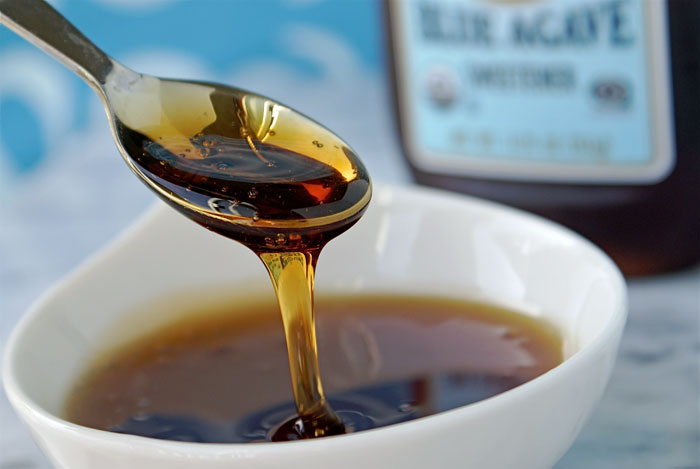
How to take Jerusalem artichoke syrup
Ground pear syrup is an excellent sweetener. It is added to dessert dishes or sweetened drinks. For therapeutic and preventive purposes, take 1 tablespoon of syrup 30 minutes before meals.
A video from the Gordeeva Live channel will tell you what ailments Jerusalem artichoke will help you cope with.
How and how long to store syrup
Jerusalem artichoke syrup is stored in a cool place for six months. Jars and bottles in which the finished syrup is poured are subject to mandatory sterilization over steam. The lids are boiling.
Small volumes of Jerusalem artichoke syrup are best stored in the refrigerator. For your health and the health of your family, it is advisable to always keep Jerusalem artichoke syrup on hand.




